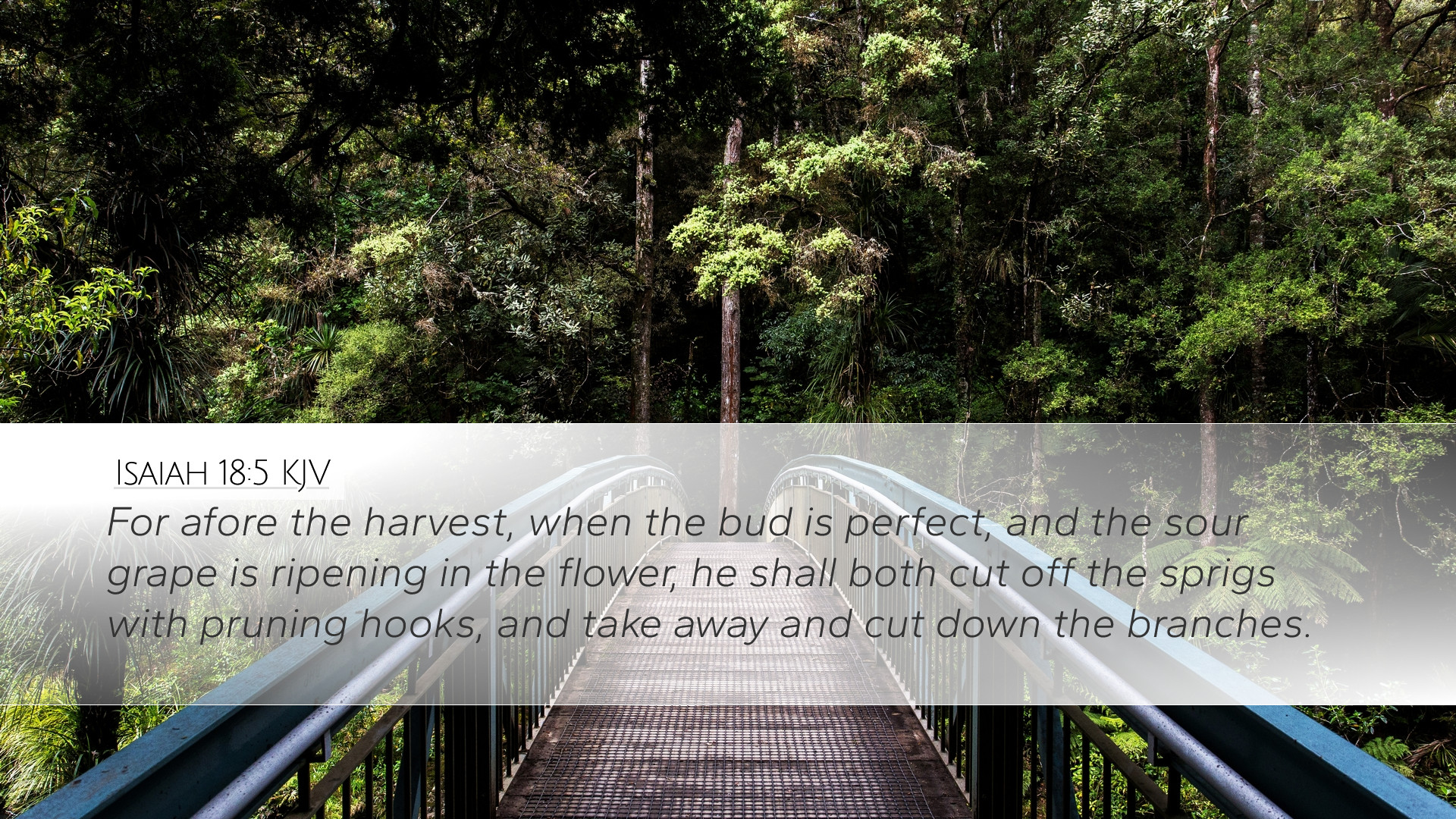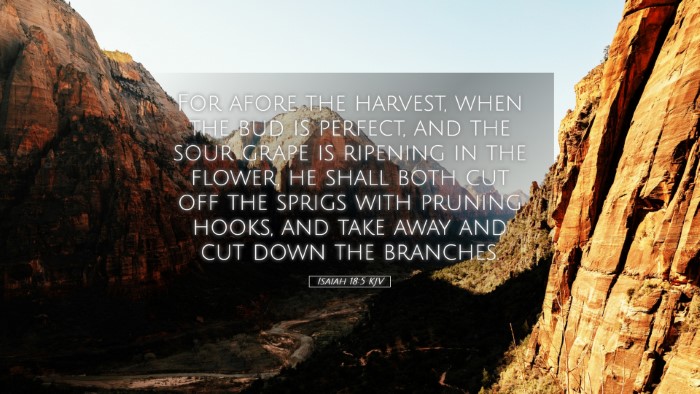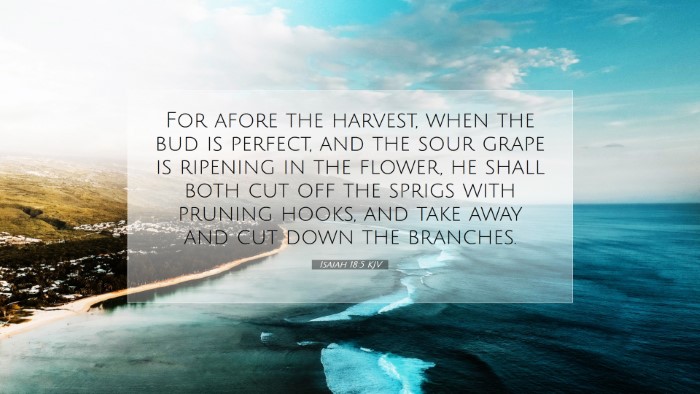Commentary on Isaiah 18:5
Isaiah 18:5 states: "For before the harvest, when the bud is perfect, and the sour grape is ripening in the flower, he shall both cut off the sprigs with pruning hooks, and take away and cut down the branches." This verse contains a prophetic message that draws on agricultural imagery to convey deep spiritual truths. Below is a synthesis of insights from various public domain commentaries that elucidate the meaning of this passage.
Contextual Overview
The Book of Isaiah is a rich source of both prophetic critique and hope. In this chapter, God addresses nations beyond Israel, emphasizing His sovereignty over all creation. Specifically, Isaiah 18 speaks to Ethiopia, a nation described both in terms of geography and culture. The message here is dual-edged: warning of impending judgment and highlighting God’s ultimate authority over the nations.
Agricultural Imagery
Isaiah employs the metaphor of agriculture, which would have been readily understood by the agrarian society of his time. This imagery serves multiple purposes:
- Harvest as Judgment: The "harvest" metaphor often signifies the time of judgment in scripture, where the fruits of one’s actions are revealed. In this context, the pruning hooks represent God's judgment on the nations that have turned away from Him.
- Perfect Buds and Sour Grapes: The mention of “the bud” being perfect and “sour grapes” signifies the potential yet unfulfilled. It indicates that while there is promise, there is also decay and corruption that must be addressed.
- Divine Intervention: The act of cutting off branches and sprigs with pruning hooks highlights the active role of God in the world. It reflects His authority to judge and purify the land, ensuring that only what is fruitful remains.
Insights from Commentaries
Matthew Henry
Matthew Henry emphasizes that this verse illustrates the certainty of divine judgment. He notes that the cutting off of the sprigs with pruning hooks is not merely an act of destruction but serves a greater purpose in purifying what remains. Henry states, “There is no fence nor hedge against divine judgments; they are a part of God’s providential governance, shaping nations and individuals alike.”
Albert Barnes
Albert Barnes elucidates the prophetic implications of this verse. He highlights how the imagery resonates with the concept of divine timing: “Before the harvest signifies a preparatory phase, where God calls His people to repentance before the impending judgment falls upon them.” Barnes points out that this period should be seen as a chance for transformation rather than simply a prelude to condemnation. He connects this idea to the New Testament’s message of repentance and God's desire for all to come to salvation.
Adam Clarke
Adam Clarke expands upon the agricultural imagery by interpreting the “sour grape” as representing sinfulness within nations. “The fruit produced by the vine of a nation reflects its spiritual state,” Clarke asserts. He emphasizes the importance of fruitful practices aligned with God’s righteousness. Clarke’s interpretation challenges readers to examine their behaviors and seek spiritual growth, aligning with the true vine that is Christ.
Spiritual Applications
This passage encourages a reflection on both corporate and individual spiritual lives. Here are some key applications drawn from the commentaries:
- Repentance and Renewal: Just as God uses judgment to prune nations, individuals are called to reflect on personal sin and seek renewal. This verse serves as a reminder of the importance of repentance in maintaining a fruitful relationship with God.
- Understanding God’s Sovereignty: Acknowledging God’s control over nations allows believers to find comfort and hope, even in tumultuous times. It assures that God’s plans prevail over human actions and political climates.
- Preparation for God’s Work: The season before a harvest is critical for preparation. Believers are encouraged to prepare their hearts for God's work in their lives, recognizing that he desires to bear good fruit through them.
Conclusion
The message of Isaiah 18:5 transcends its historical context, delivering timeless truths about divine judgment and intervention. The insights extracted from various commentaries provide pastors, students, and theologians with a framework to understand the implications of this verse fully. As we delve into its agricultural imagery, we are reminded of God’s active role in the world and challenged to align ourselves with His purpose, allowing Him to cultivate in us a character that is pleasing to Him.


